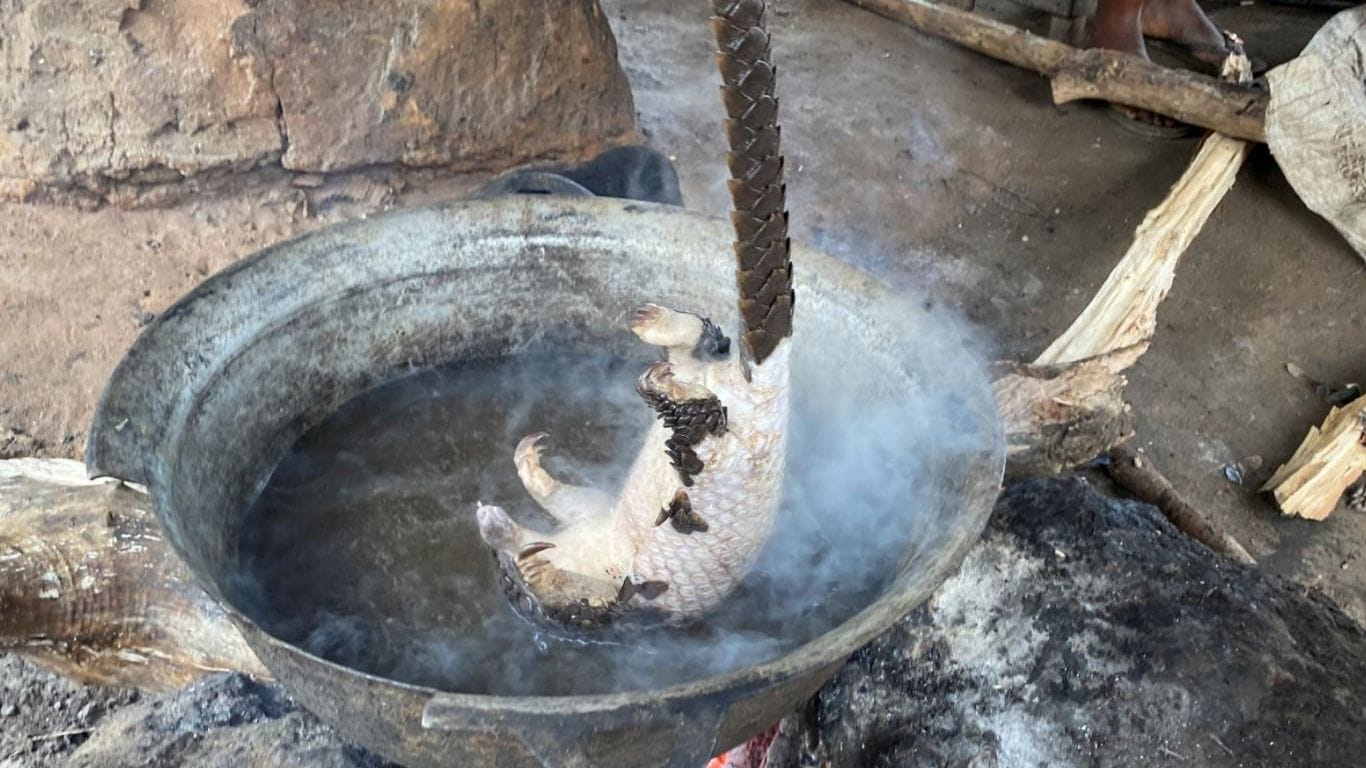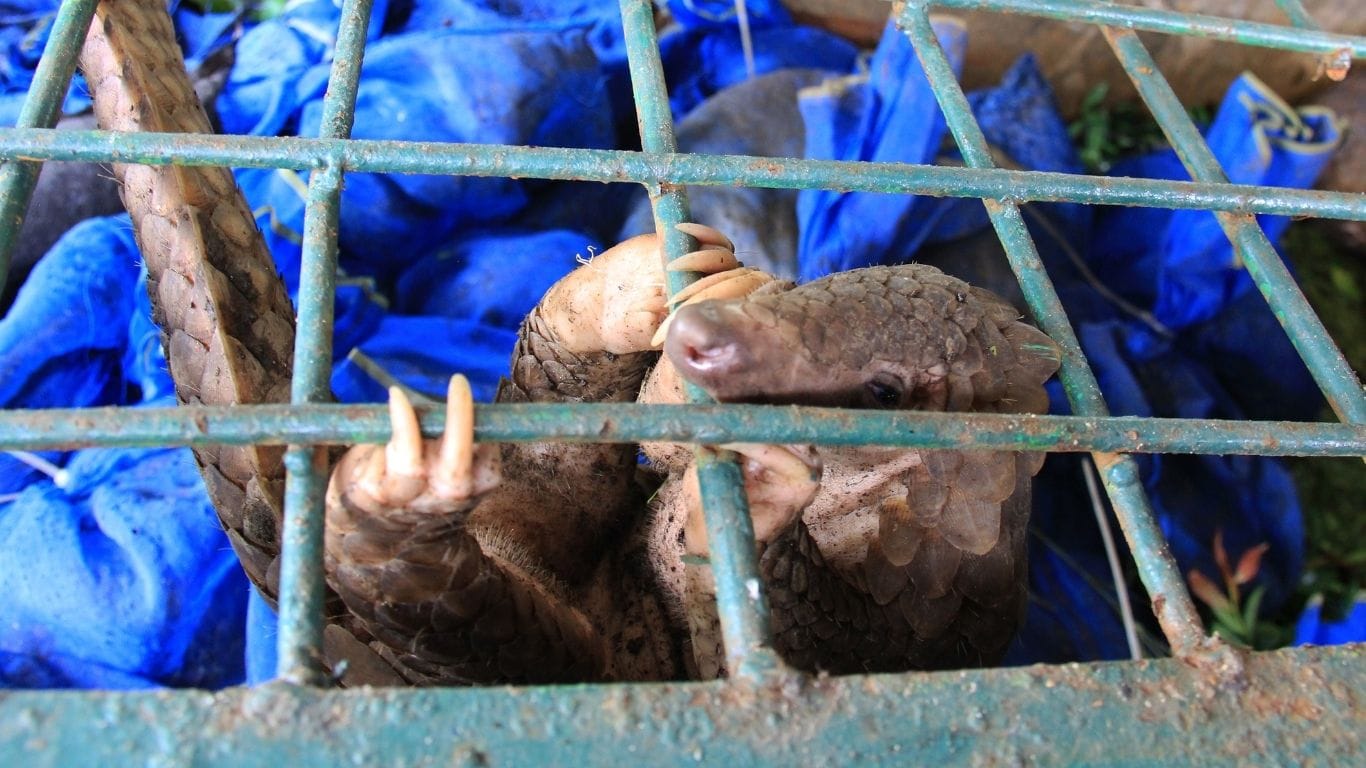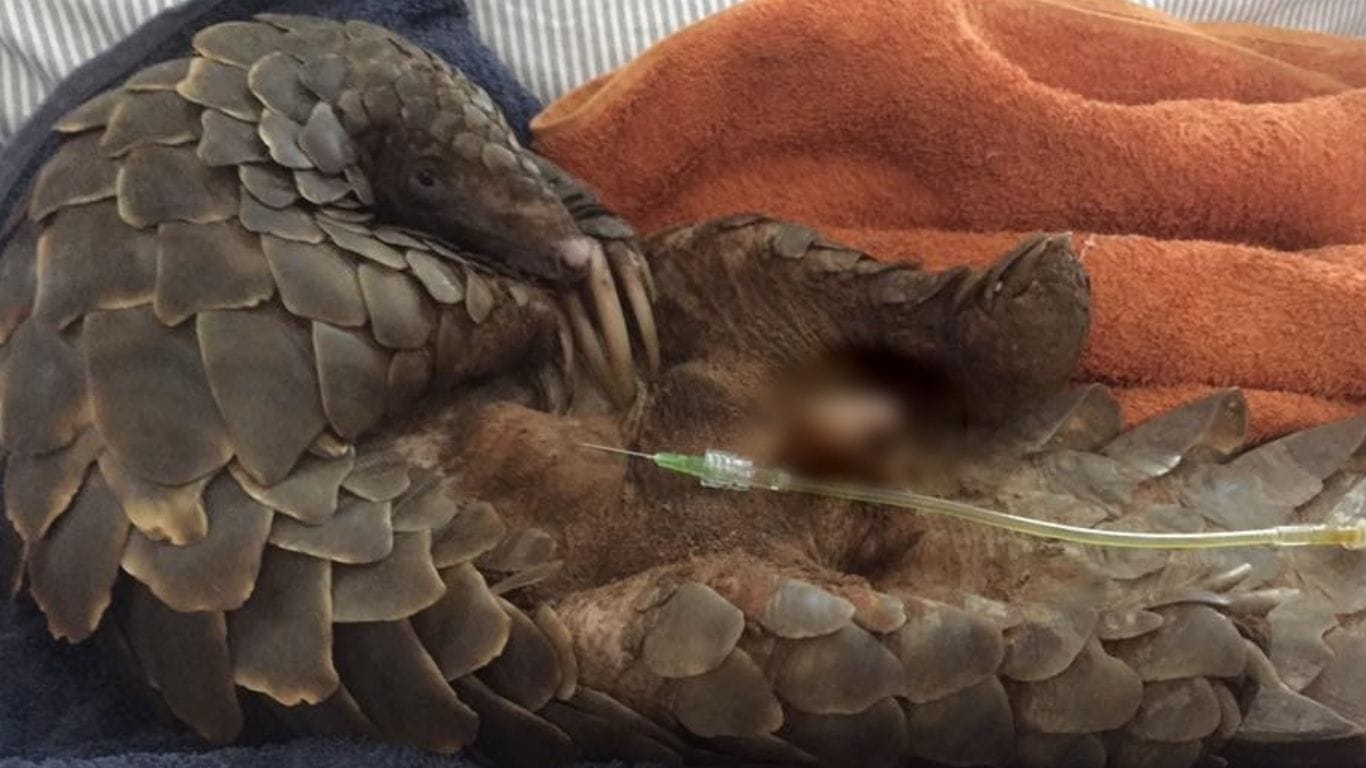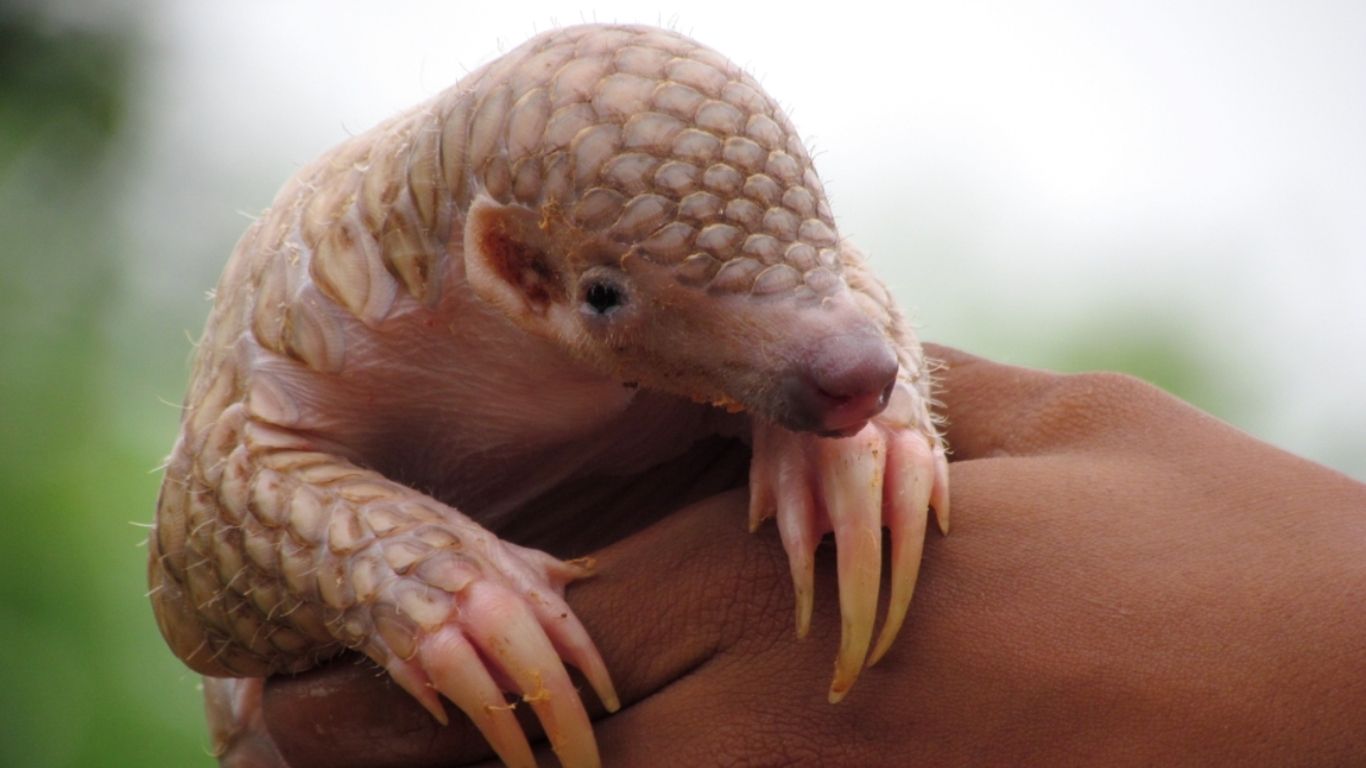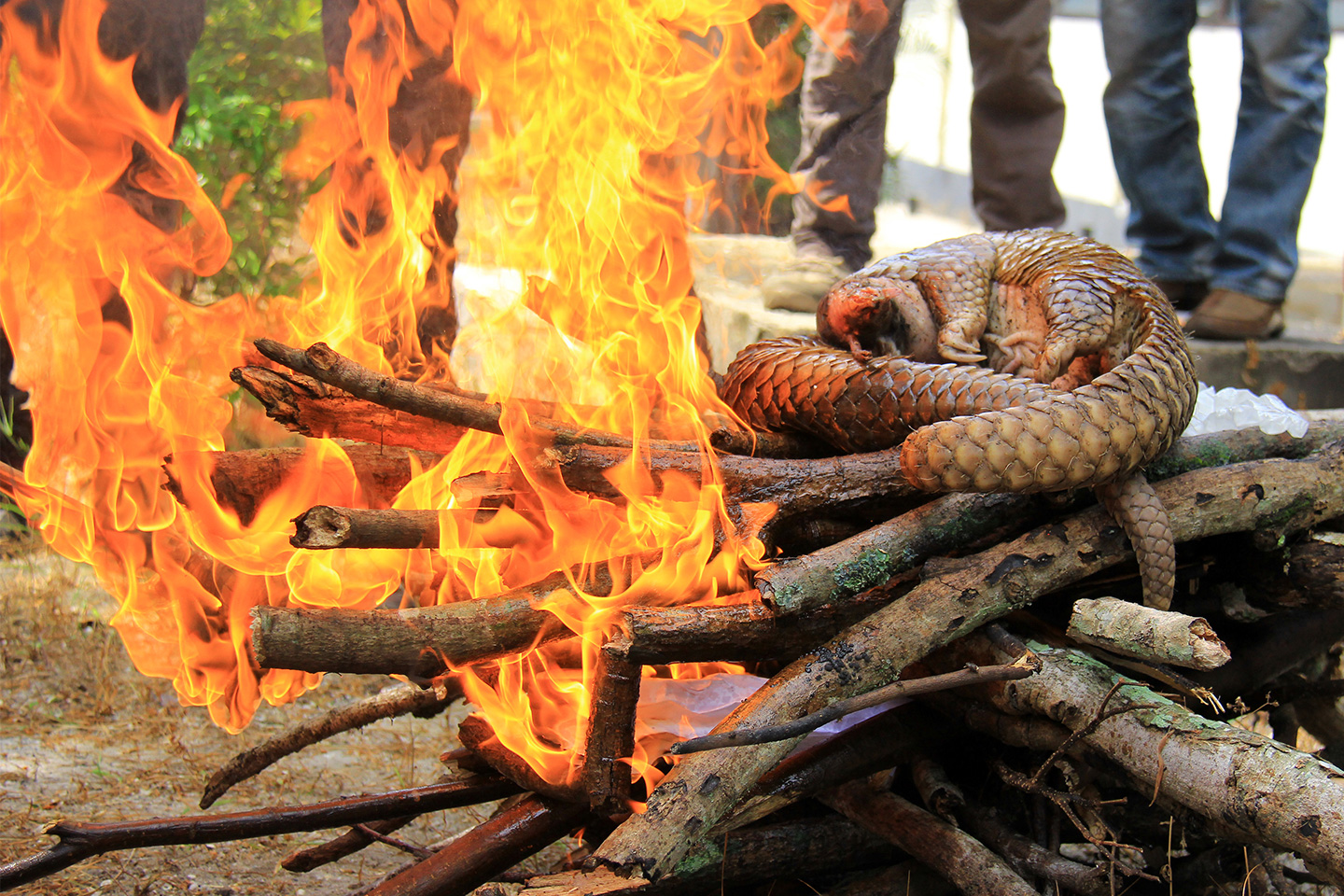Pangolins are in CRISIS!
Despite international protection, this shy, nocturnal creature is still the most trafficked mammal in the world. Now, with COVID-19 regulations easing, more pangolins than ever are being stolen from the wild. Pangolins are racing towards extinction. Two species could be gone in a decade.
More than ONE MILLION pangolins have been poached and trafficked in the last decade. Highly sought after in Asian countries, pangolins are brutally killed for their scales which are used to make traditional Chinese ‘medicines’. But not only that, they are also considered a delicacy and eaten as a status symbol in some countries. But, with your help, we can save many of these creatures.
In 2019 alone, 195,000 pangolins were poached in the wild; each one endured horrific suffering. Many were boiled alive!
Smugglers get more money for live pangolins because some cooks like to boil them alive. This means the poor creatures suffer horrific physical manhandling and trauma as they’re captured in the wild and smuggled to wet markets in Asia where they are crammed into tiny cages to be sold.
There are dedicated people working to rescue and rehabilitate pangolins saved from smugglers, but they often do not have the resources to respond to emergencies. We at PAL exist to prevent animal extinction, and we must ensure that when there is a chance to save a pangolin, we are ready and able to respond.
We never know when a trafficked pangolin is going to be found and confiscated by law officials. It is essential that we are ready to respond to pangolin emergencies at any given time. We must be able to help rescue, transport and provide medical care immediately.
Rescued pangolins need costly, emergency medical care to survive.
Rescued pangolins need immediate, critical care if they are to survive the days following their rescue. Often, they are suffering from immense physical and mental trauma inflicted on them by their captors. Many have severe injuries, are critically dehydrated and too stressed to eat.
Pangolins are as vulnerable as newborn babies during their rehabilitation process and must be cared for around the clock. They need to be kept at a constant temperature and rehydrated intravenously. They’re also highly susceptible to stress which makes keeping them alive in captivity difficult. But, it is critical to save them so that they have a chance of recovering and being released back to protected wild areas.
All eight pangolin species are at risk of being lost forever. We need to do everything possible to save every pangolin life that we can. Sometimes pregnant females are amongst the rescued pangolins. Saving these pangolin mothers is critical if we are to ensure the existence of the next generation. If we don’t help this important species, it will only be a matter of time before pangolins become extinct.

